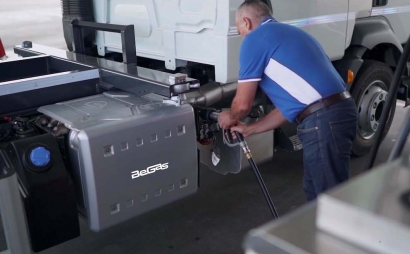
Biopropane complies with the European Renewable Energy Directive (RED), "which makes it a perfect short-term solution for the decarbonisation of heavy urban bus and truck fleets," according to BeGas , a company specialized in the development of engines fueled 100% with autogas or biopropane.
"Thanks to the use of this alternative fuel, local corporations can advance their goals of climate neutrality. It is enough to replace the diesel engines of the urban truck and bus fleets with others powered by biopropane," they add from the company, which analyzes the main characteristics of this fuel:
• It is a gas that can be easily transported by land and sea, when liquefied at high pressure.
It is stored and supplied in the same way as autogas (a liquefied gas widely used in the automotive sector), which facilitates local corporations' access to energy that allows them to join the decarbonisation of transport immediately and without making large outlays. .
• Promotes the reuse of vehicles.
An urban truck, between three and ten years old, can be repowered with a biopropane engine, simply by replacing the diesel engine with the biogas one. On the other hand, for the purchase price of a new vehicle, up to five trucks can be remoted, which also contributes to the economic sustainability of municipal entities. The possibility of betting on the circular economy and retrofit, equipping fleets with ecological engines, allows them to extend their useful life and avoids the generation of more than 16,000 kg of waste per vehicle.
• Reduces the carbon footprint and virtually eliminates NOx emissions.
Biopropane-powered engines can reduce CO2 emissions by 80%, a figure much higher than that set by the EU in Fit for 55, whose objective is to reduce emissions by at least 55% by 2030. For these reasons, as well as for its ability to minimize NOx emissions and particulate matter, vehicles powered by biopropane earn the Eco-DGT label.

